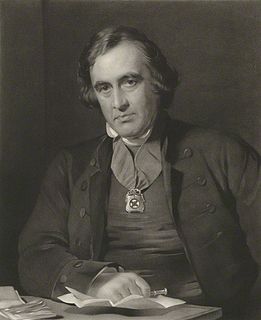A Quote by Carine Roitfeld
Sins are timeless. Sins are an everyday reality for every one. Sin has been in existence since the beginning of man, since Adam and Eve. It will always be pertinent.
Related Quotes
Satan’s sin becomes the first sin of all humanity: the sin of ingratitude. Adam and Eve are, simply, painfully, ungrateful for what God gave. Isn’t that the catalyst of all my sins? Our fall was, has always been, and always will be, that we aren’t satisfied in God and what He gives. We hunger for something more, something other.
Sin is not only manifested in certain acts that are forbidden by divine command. Sin also appears in attitudes and dispositions and feelings. Lust and hate are sins as well as adultery and murder. And, in the traditional Christian view, despair and chronic boredom - unaccompanied by any vicious act - are serious sins. They are expressions of man's separation from God, as the ultimate good, meaning, and end of human existence.
To free a man from suffering, he must be set right, put in health; and the health at the root of man's being, his rightness, is to be free from wrongness, that is, from sin. A man is right when there is no wrong in him. I do not mean set free from the sins he has done: that will follow; I mean the sins he is doing, or is capable of doing; the sins in his being which spoil his nature — the wrongness in him — the evil he consents to; the sin he is, which makes him do the sin he does.
Every soul that is born into flesh is soiled by the filth of wickedness and sin. . . . In the Church, baptism is given for the remission of sins, and, according to the usage of the Church, baptism is given even to infants. If there were nothing in infants which required the remission of sins and nothing in them pertinent to forgiveness, the grace of baptism would seem superfluous
Little sins carry with them but little temptations to sin, and then a man shews most viciousness and unkindness, when he sins on a little temptation. It is devilish to sin without a temptation; it is little less than devilish to sin on a little occasion. The less the temptation is to sin, the greater is that sin.
Do not lose your temper with those who sin. Do not have a passion for noticing every sin in your neighbor and judging it, as we usually do. Everyone will give an answer for himself before God. Especially, do not look with evil intention on the sins of those older than you, with whom you have no business. But correct your own sins, your own heart.
We are saved from nothing if we are not saved from sin. Little sins are pioneers of hell. The backslider begins with what he foolishly considers trifling with little sins. There are no little sins. There was a time when all the evil that has existed in the world was comprehended in one sinful thought of our first parent; and all the now evil is the numerous and horrid progeny of one little sin.
Christ will be master of the heart, and sin must be mortified. If your life is unholy, then your heart is unchanged, and you are an unsaved person. The Savior will sanctify His people, renew them, give them a hatred of sin, and a love of holiness. The grace that does not make a man better than others is a worthless counterfeit. Christ saves His people, not IN their sins, but FROM their sins. Without holiness, no man shall see the Lord.
If, in the case of the worst sinners and those who formerly sinned much against God, when afterwards they believe, the remission of their sins is granted and no one is held back from baptism and grace, how much more, then, should an infant not be held back, who, having but recently been born, has done no sin, except that, born of the flesh according to Adam, he has contracted the contagion of that old death from his first being born. For this very reason does he [an infant] approach more easily to receive the remission of sins: because the sins forgiven him are not his own but those of another




































